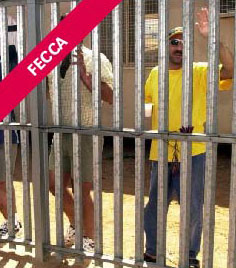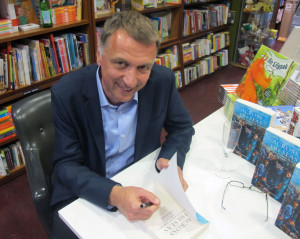A new conversation needed on refugees and asylum seekers
Australia needs to ‘reboot’ the conversation about its refugee and asylum seeker policy in the face of international developments in migration and the tide of refugees sweeping into Europe, according to leading historian Professor Klaus Neumann.
Speaking at the 2015 Federation of Ethnic Communities’ Councils of Australia (FECCA) conference in Sydney this month, Professor Neumann said that cynical or pragmatic politics has almost always gotten in the way of a responsible refugee policy.
“In Australia, the history of multiculturalism is bound up with the history of its humanitarian refugee settlement program,” he said.
“But there has never been and there is still no coherent refugee policy based on Australia’s international responsibilities and obligations – or on a moral approach,” Professor Neumann said.
Professor Neumann points to former immigration minister Gerry Hand, who, in 1992, introduced the controversial policy of mandatory detention for illegal arrivals and asylum seekers as an example of Australia’s craven approach to refugees.
“Hand characterised Chinese boat people as gangsters and madams and opposed visas for Chinese students fleeing after the Tiananmen Square protests,” he said.
Prof Neumann said Australia’s response to asylum seekers was “not normal” but specific to the domestic environment and political imperatives.
“We have a bi-partisan approach to asylum seeker policy – even to offshore detention – with both sides of politics vowing never to settle anyone arriving by boat,” he said.
“This is even though we now know prolonged incarceration has such significantly bad effects on mental health and is best avoided,” Prof Neumann said.
“We need to reboot the conversation about Australia’s refugee and asylum seeker policy,” he said.
“It needs to be informed by looking at the capacity we have as an affluent nation to accept more refugees and by the human rights of displaced people.
“I would suggest there has never been any underlying moral component around the human dignity of refugees and asylum seekers in Australia’s refugee policy,” he said.
In his new book, ‘Across the Seas, Australia’s response to refugees: a history’, Swinburne University historian Professor Neumann places the Australian story in the context of global refugee movements, and international responses to them.
Neumann examines several case studies, including the resettlement of displaced persons from European refugee camps in the late 1940s and early 1950s, and the panic generated by the arrival of Vietnamese asylum seekers during the 1977 federal election campaign.
By exploring the ways in which politicians have approached asylum-seeker issues in the past, Neumann says he hopes to inspire more creative thinking about current refugee and asylum-seeker policy.
Neumann shows that immigrants – rarely welcomed, almost always the subjects of ill-informed invective – have always been essential to our society and economy.
Laurie Nowell
AMES Australia Senior Journalist














